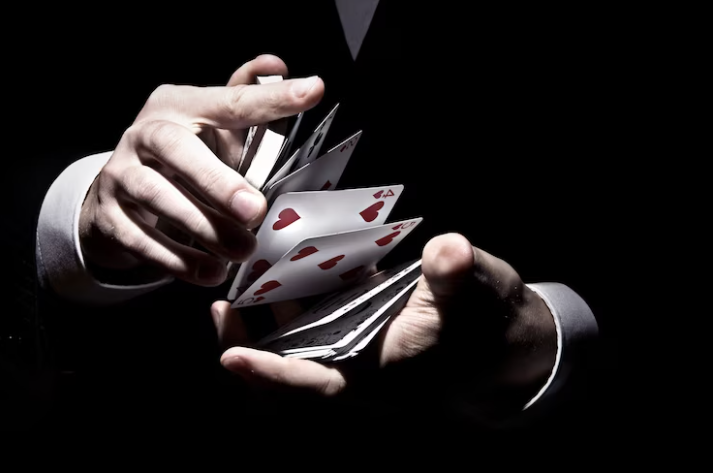
From Dopamine Rush to Risky Bets: How Your Brain Hooks You on Gambling

Hey there! Ever wonder why people like to gamble and take risks? Well, you're not alone. In this article, we'll dig into the psychology of gambling and explore why we're drawn to this thrilling activity.
Gambling isn't just about luck; it's about the way our brains react to the excitement and uncertainty that comes with it. Understanding this psychology can help us make better choices when it comes to gambling.
So, let's dive in and uncover the reasons why we humans can't resist the allure of gambling.
The Appeal of Gambling
Gambling is so appealing because of two key factors: the thrill of not knowing what will happen next and the way our brains react to rewards.
The Thrill of Uncertainty
When you're gambling, you're stepping into a world of uncertainty. It's like being on a rollercoaster – you never know when the next twist or turn will come. Your brain loves this kind of uncertainty because it triggers excitement. It's like a rush of adrenaline that keeps you coming back for more.
Think about it: when you're at a slot machine or a poker table, you're not just hoping to win; you're craving that feeling of not knowing whether you'll win or lose. It's the unpredictability that makes gambling so thrilling.
Dopamine and Reward Systems
Now, let's talk about your brain's reward system. Every time you gamble and take a risk, your brain releases a chemical called dopamine. This little molecule is responsible for making you feel good.
The more you gamble, the more your brain craves that dopamine hit. Over time, this can lead to addiction because your brain associates gambling with pleasure. That's why it can be tough to stop once you start.
So, remember, when you're gambling, your brain is in pursuit of that exciting feeling, and it's all thanks to dopamine. It's a powerful motivator that keeps you hooked.
Psychological Factors Influencing Gambling Behaviour
Cognitive Biases
Our brains aren't always as rational as we'd like to think. They're filled with what we call "cognitive biases." These are little mental shortcuts that can lead us to make irrational decisions when gambling.
For example, have you ever felt like you were on a winning streak at the casino? That's the "illusion of control" bias at work. It's when you believe you have more control over the outcome than you actually do.
And then there's the "gambler's fallacy." This one makes you think that if you've been losing for a while, you're due for a win. But in reality, each spin of the roulette wheel or pull of the slot machine lever is independent. Your past results don't affect your future ones. These biases can make you take more risks than you should, leading to losses.
Personality Traits
Now, let's talk about how your personality can influence your gambling behaviour. Some people are just naturally more inclined to take risks than others. If you're the adventurous type who loves seeking thrills, you might be more likely to enjoy gambling.
On the flip side, if you tend to be impulsive, you might find it harder to resist the urge to gamble, even when you should stop. These personality traits can shape your gambling habits and make them riskier.
Understanding your own personality and how it relates to gambling can help you make smarter choices. So, take a moment to reflect on your own tendencies and how they might influence your gambling.
Emotional State and Stress
Now, let's talk about emotions and stress. When life gets tough or stressful, some people turn to gambling as a way to cope. It's like a temporary escape from life's challenges.
But here's the catch: relying on gambling as a coping mechanism can lead to bigger problems. It might provide a short-term relief, but it often leads to long-term stress and financial troubles.
So, if you find yourself using gambling to escape, it might be time to explore healthier ways to manage stress. Remember, understanding your emotions and how they impact your gambling choices can help you make better decisions. It's all about taking control.
Social and Environmental Influences
Peer Pressure and Social Norms
Peer pressure and social norms can play a big role in making you take risks with gambling. When everyone around you is doing it, it can feel like the "normal" thing to do, even if it's not the best choice for you.
Remember, it's okay to say no and make decisions that are right for you, regardless of what others are doing.
Advertising and Accessibility
You've probably seen ads for casinos, sports betting, and online poker, right? These ads are designed to make gambling seem exciting and glamorous.
Advertisers want you to believe that winning big is just a few spins away. They use catchy slogans and flashy visuals to grab your attention. But it's important to remember that these ads are trying to get you to spend your money.
Easy access to gambling venues and online platforms can also make it hard to resist the temptation. When you can gamble with just a click of a button, it's easy to get caught up in the excitement.
Problem Gambling and Addiction
Warning Signs and Symptoms
Sometimes, what starts as innocent fun can turn into a serious issue. It's essential to recognize the warning signs of problem gambling. These signs can include:
- Spending more money and time on gambling than you can afford.
- Trying to win back losses by gambling more.
- Lying to friends and family about your gambling habits.
- Neglecting responsibilities and relationships because of gambling.
If you or someone you know shows these signs, it's crucial to seek help